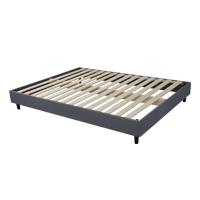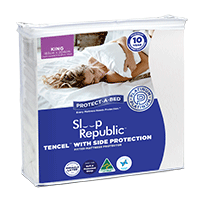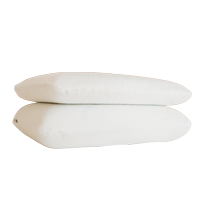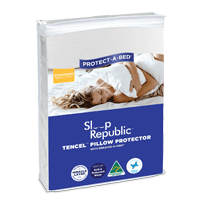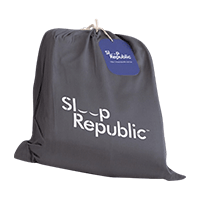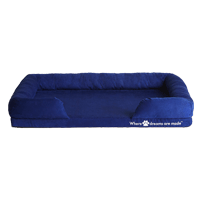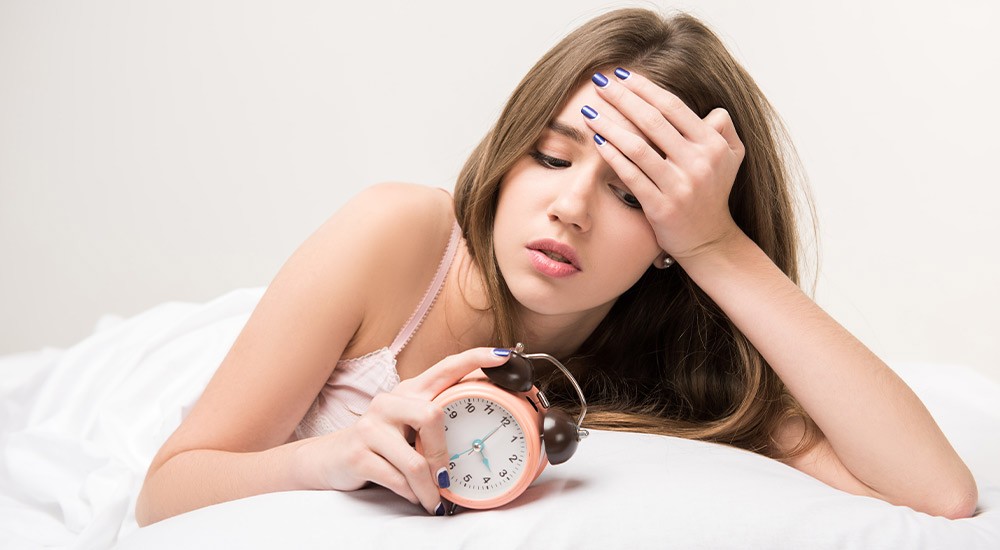Slumber Tips
How to get to sleep faster
Change your sleep patterns for the better
Sleep deprivation is the worst. It can affect our moods, our concentration, our energy levels and our physical health – did you know long-term sleep deficiency can increase your risk of heart disease and diabetes?
Yet in a world filled with non-stop demands and distractions, it can be hard to catch the amount of shut-eye that we so desperately need.
There’s a wealth of information online about how to practice good sleep hygiene, but some of the best advice is the simplest. We’ve gathered our top tips for getting to sleep (and staying asleep), and none of them involve practising yoga, buying an immersive rain forest soundtrack machine, or eliminating coffee from your diet.
Think your mattress is affecting your sleep? Get the perfect night’s sleep on our hybrid memory foam mattress – contact Sleep Republic today.
Get regular exercise

Now, allow us to preface this point by saying we understand not everyone is a rise-at-the-crack-of-dawn, cardio-loving exercise enthusiast. We don’t believe you should need to physically exhaust yourself to sleep soundly at night.
But it is important to do a light-to-moderate amount of exercise each day if you’re looking to improve your sleep habits and cut down on the amount of nights you spend lying awake staring at the ceiling.
That’s because exercise boosts the production of serotonin in your brain and decreases your levels of cortisol, otherwise known as the stress hormone. Serotonin is the precursor for melatonin and helps regulate your sleep-wake cycles as well as your internal body clock. It also assists in triggering REM, aka deep sleep, and warding off depression and anxiety.
So how much exercise is enough on a daily basis? According to research, as little as 10 minutes can significantly improve the quality of your nighttime sleep, especially when done on a regular basis. Just be wary of exercising too close to bedtime or your body might become too revved up to switch off.
Try the ‘4-7-8’ method
This simple breathing technique is easy to remember and proven to help you fall asleep when nothing else is working. It can also be used to relieve anxiety or stress during the daytime.
The technique consists of breathing in for four seconds, holding the breath for seven seconds, and exhaling for eight seconds. You can repeat the pattern as many times as necessary – some people claim that it helps them fall asleep in under a minute!
There is limited scientific research behind the ‘4-7-8’ method but loads of anecdotal evidence to suggest it works. It’s definitely worth a try next time you’re dealing with insomnia or have head filled with racing thoughts. At the very least, it will help you relax and breathe properly.
Watch what (and when) you eat

Our diet influences our lives in lots of different ways and sleep is no exception. If you’re fond of rich, fatty foods and consuming them too close to bedtime, you’re probably not going to be getting great shut-eye.
Caffeine is an obvious culprit when it comes to keeping us awake at night and most heavy, hard-to-digest meals won’t do you any favours either.
However, the following foods could actually help you fall asleep faster and stay asleep for longer:
- Nuts, especially those rich in sleep-inducing melatonin like almonds and walnuts
- Bananas and other antioxidant-rich fruits such as kiwifruit
- Fish, particularly salmon, tuna, trout and mackerel due to its unique combination of omega-3 fatty acids and vitamin D
- Porridge, which is not only a comfort food but drowsiness-inducing
- Milk and dairy – in moderation, of course – because calcium can help reduce stress by stabilising the nerve fibres in your brain.
The other dietary staple for those looking to improve their sleep is herbal tea. Chamomile is the best-known option, but you could also try alternative bedtime blends – look for ones containing valerian root, lemon balm and lavender.
Upgrade your mattress
Ah, you knew we were coming to this! There’s no denying that the quality of your mattress has a direct effect on the quality of your sleep and overall health.
If you frequently wake up feeling unrested, sleep better on beds belonging to friends or relatives, or have to lie on a particular place in your mattress to get to sleep, it’s probably time for a mattress upgrade.
As mattresses get older they can start to sag or feel lumpy which is uncomfortable and could be keeping you awake. Even if your mattress is relatively new, the wrong kind of mattress could prevent you from sleeping.
There’s no one-size-fits-all solution to selecting the perfect mattress, so take the time to read mattress reviews online before buying a new one. You might also want to explore the difference between Hybrid foam mattresses and traditional mattresses.
If you have a specific health problem, such as a dodgy back, that is also impacting your sleep, our hybrid pocket spring mattress has a gel-infused memory foam layer to aid in pressure relief and temperature control. It is super supportive and the best mattress for back pain.
Turn off your devices

Everything from your smartphone charger to your TV generates ambient heat and affects your ability to go to sleep. Don’t leave your devices switched on beyond necessity and try to keep them out of your bedroom altogether.
If you are spending hours lying in bed looking at your smartphone or tablet, it may be disrupting your sleep. The light from these devices triggers your brain into thinking it is daytime and suppresses the production of melatonin, the ‘sleep hormone’.
Turn off your devices at least an hour or two before bed, or better yet, remove them from your bedroom entirely to start sleeping soundly in no time.
Want to see why our mattress in a box is loved by people all over Australia? Change your sleep for the better with a 150 Night Trial and discover the Sleep Republic difference.


